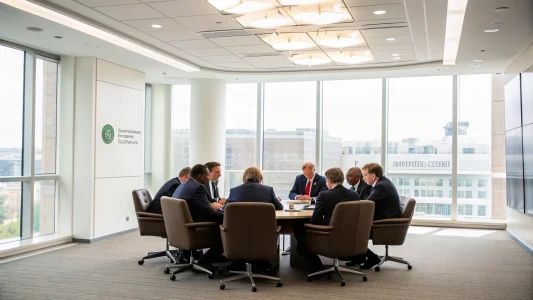In February, consumer confidence in economic wellbeing plummeted and was the largest decrease in confidence since August 2021. Many are not happy with the lack of lowering inflation by President Donald Trump
Consumer Confidence Plummets
The consumer confidence index, a standardized indicator of future household consumption and saving dropped from 105.3 to 98.3, much lower than the expected 103. This drop represents that consumer confidence about the economy, peoples individual financial situation, and the ability to find employment. When the index dropped in the past, it generally led to reduced consumer spending, weaker business growth, and volatility within the stock market. Some economists are concerned that this steep drop indicates the possibility of an economic slowdown or even a recession.
Adam Crisafulli, President of Vital Knowledge, said “The Conference Board survey is the 3rd data point in less than a week making it abundantly clear that Trump-linked policy uncertainty is eroding confidence and tipping the economy into a slowdown.” Crisafulli’s statement is further evidenced by the stock market going down. The S&P 500 fell 0.8% on the morning of the release, the Dow Jones dropped 1.7%, and Nasdaq decreased by 1.6%.
Why is Confidence Down?
Respondents to the survey mentioned that the main reason they were less confidence was concerns over inflation. President Trump has made it well known that he plans on adding more tariffs now that he is in office. To make things worse, a nationwide bird flu epidemic has increased the price of eggs drastically. Trump believes that tariffs will help the US economy in the long run, but it certainly isn’t helping in the short run. Trump also made large promises about cutting inflation as soon as he was in office, but with the recent price increases from tariffs, some consumers aren’t convinced.
Additionally, President Trump and Elon Musk, a member of Trump’s Department of Government Efficiency, have publicly indicated that mass firings may continue to occur amongst government workers. This stems from Trump’s desire to cut US spending to alleviate the large amount of debt the government is in.
Economists also aren’t optimistic about the economic future. They currently are not predicting any sort of recession, but doing expect slow economic growth. While economists disagree on how long of a period this would be, it certainly will put the Federal Reserve in a tough spot. The Fed opted to delay cutting interest rates in January, despite pressure from President Trump to do so. While it’s uncertain what the future of the US economy holds, it’s safe to say that only time will tell.
Featured Image Credit: Aedrian Salazar; Pexels: Thank You!















